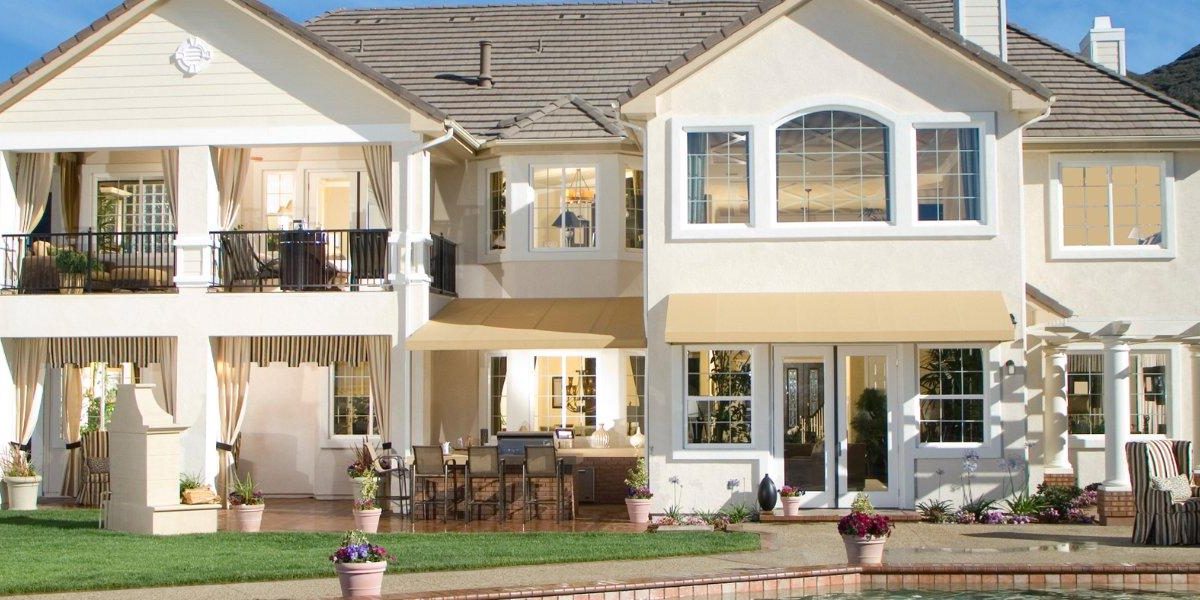Essential Considerations for High-Net-Worth Individuals' Luxury Homes
As a high-net-worth individual or estate planner responsible for a luxury home, protecting your valuable assets is paramount.
Home insurance is not merely a financial obligation; it’s a strategic investment that safeguards your wealth and ensures the well-being of your family.
This comprehensive guide will delve into the essential considerations for high-value home insurance, exploring topics such as estate planning, home security, and natural disaster preparedness.
By understanding these factors, you can make informed decisions to protect your valuable possessions and ensure a secure future.
Together we will examine the essential topics to keep in mind to adequately protect your luxury home and its contents.
Ensuring that your high-value assets are sufficiently protected.
High Value Home Insurance and Estate Planning
For high-net-worth individuals, integrating high-value home insurance into your comprehensive estate plan is a crucial step in protecting your legacy.
In this section, we’ll explore how your high-value home insurance can work hand-in-hand with your estate planning strategies to safeguard your valuable assets and ensure a smooth transition for your beneficiaries.
You’ll gain a deeper understanding of the importance of properly designating beneficiaries and learn about the potential tax implications of insurance proceeds.
By the end of this section, you’ll be better equipped to make informed decisions that will help you preserve your wealth and provide for your loved ones.
Comprehensive Strategy: Ensure your high-value home insurance seamlessly integrates with your overall estate planning strategy. This includes considering factors such as your beneficiaries, asset distribution, and tax implications.
Risk Mitigation: High-value home insurance can help mitigate risks associated with property damage, identity theft, or possible liability coverage claims, safeguarding your estate’s value and providing financial security for your beneficiaries.
Estate Tax Implications: Understand the potential tax implications of insurance proceeds and explore strategies to minimize estate taxes. Consulting with an estate planner can help you navigate these complexities.
Careful Consideration: Carefully consider who you want to inherit your high-value home and its contents.
Choose beneficiaries who will be able to manage and maintain your property effectively.
Estate Planning Documents: Clearly specify beneficiaries in your will, trust, or other estate planning documents.
Review and Update: Regularly review and update your beneficiary designations to ensure they align with your current wishes and circumstances.
Estate Taxes: Insurance proceeds may be subject to estate taxes depending on the value of your estate and other factors.
Irrevocable Trusts: Consider using irrevocable trusts to transfer ownership of your home and its contents to beneficiaries outside your estate, potentially reducing estate taxes.
Tax-Qualified Charitable Trusts: If you have charitable intentions, explore the option of donating your home to a qualified charitable trust to receive tax benefits.
By carefully integrating high-value home insurance into your estate planning strategy, you can protect your assets, minimize taxes, and ensure a smooth transition of your property to future generations.
High Value Home Security and Loss Prevention Strategies
As a high-value homeowner, ensuring the security of your luxury residence is a top priority.
Below, we’ll guide you through the essential steps to safeguard your home from theft, vandalism, and other security threats.
You’ll discover the benefits of installing a state-of-the-art home security system and learn about effective loss prevention strategies that can help you gain high value home valuable possessions protection.
By implementing these measures, you can enjoy greater peace of mind knowing that your dream home is well-protected.
Let’s explore these critical security aspects together.
Identify Vulnerabilities: Conduct a thorough assessment of your home’s security vulnerabilities.
This includes identifying weak points in your home’s structure, such as doors, windows, and fences.
Evaluate Local Crime Rates: Research crime rates in your neighborhood to assess the risk of theft or vandalism.
Consider factors such as property crime statistics and the presence of local security initiatives.
Consider High-Risk Areas: Pay particular attention to areas of your home that may be more vulnerable to intrusion, such as ground-level windows, secluded areas, or areas with poor lighting.
Alarm Systems: Install a state-of-the-art alarm system with motion sensors, glass break detectors, and remote monitoring capabilities.
Consider integrating your alarm system with your home automation system for enhanced security.
Surveillance Cameras: Install surveillance cameras both inside and outside your home to deter crime and provide evidence in case of a break-in.
Choose high-quality cameras with night vision and motion detection capabilities.
Access Control Systems: Implement access control systems for doors and gates to restrict unauthorized access to your property.
Consider using smart locks with remote access and biometric features.
Strengthen Entry Points: Ensure that doors and windows are secure with strong locks, deadbolts, and reinforced frames.
Consider upgrading to high-security locks and reinforcing vulnerable areas.
Lighting: Install adequate outdoor lighting to deter criminals and illuminate potential hiding spots.
Use motion-activated lights for added security.
Landscape Maintenance: Maintain your landscaping to eliminate hiding places for potential intruders.
Trim bushes, shrubs, and trees near windows and doors.
Educate Household Members: Educate all household members about security best practices, including proper use of alarms, locking doors and windows, and reporting suspicious activity.
Home Security Audits: Consider hiring a professional security expert to conduct a home security audit and identify potential vulnerabilities.
Neighborhood Watch Programs: Participate in neighborhood watch programs to foster a sense of community and deter crime.
By implementing these security measures and loss prevention strategies, you can significantly reduce the risk of theft, vandalism, and other losses in your high-value home.
Natural Disaster Preparedness For Luxury Homeowners
Protecting your high-value home from natural disasters is an essential aspect of responsible ownership.
Below we’ll walk you through the process of assessing your property’s risk and developing a comprehensive mitigation plan to keep your home and valuable possessions safe.
You’ll also learn about the importance of ensuring your high-value home insurance includes adequate coverage for potential emergencies, giving you the peace of mind you deserve.
Let’s start with risk assessment and explore how you can safeguard your dream home.
Identify Natural Hazards: Evaluate the specific natural hazards that pose a risk to your area, such as hurricanes, earthquakes, floods, wildfires, or tornadoes.
Consider consulting with local emergency management agencies or using online resources to identify potential hazards.
Historical Data: Research historical data on natural disasters in your region to understand the frequency and severity of past events.
Geographic Location: Assess your home’s location in relation to natural disaster risk zones.
Consider factors such as elevation, proximity to water bodies, and soil conditions.
Structural Modifications: Consider making structural modifications to your home to improve its resistance to natural disasters.
This may include strengthening the foundation, installing impact-resistant windows, or elevating the home.
Emergency Preparedness Plans: Develop a comprehensive emergency preparedness plan that outlines evacuation routes, communication procedures, and essential supplies.
Share the plan with all household members and practice regularly.
Emergency Kits: Assemble emergency kits containing essential supplies, including food, water, first aid supplies, a flashlight, a battery-powered radio, and a change of clothes.
Backup Power: Consider installing a backup power source, such as a generator, to ensure essential services remain operational during power outages.
Insurance Coverage: Review your high-value home insurance policy to ensure it includes adequate coverage for natural disasters.
Consider purchasing additional coverage, such as flood insurance or earthquake insurance, if necessary.
For full protection consider umbrella coverage for when your limits are exhausted by a covered loss.
Regular Inspections: Conduct regular inspections of your home and property to identify and address potential vulnerabilities.
Home Maintenance: Maintain your home’s infrastructure, including roofs, gutters, and plumbing, to prevent damage during natural disasters.
Emergency Contacts: Maintain a list of emergency contacts, including insurance agents, contractors, and local emergency services.
Community Involvement: Participate in community preparedness efforts and stay informed about local emergency response plans.
By taking proactive steps to prepare for and mitigate the risks of natural disasters, you can protect your high-value home and minimize potential damage.
Protect Your High Value Home with Expert Insurance Guidance
As a high-net-worth individual, you’ve worked hard to build your legacy.
Let our high value homeowner guide help you safeguard it for generations to come.
Request your consultation now and take the first step towards ensuring the protection of your luxury residence and valuable assets.
With our expert guidance and tailored high-value home insurance solutions, you can confidently embrace your passion for collecting and cherish your treasured possessions worry free.
Don’t wait until it’s too late act now to secure the future of your high value home and the precious items that make it truly special.
Embark on the path to ultimate peace of mind today!





